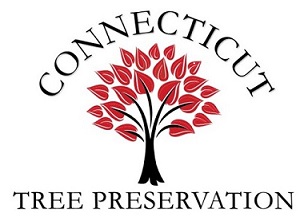Foliar Spraying
Certified Organic spray protection through tree leaves to ensure the essential elements are absorbed
Winter Moth
Often referred to as the "inchworm," the Winter Moth caterpillar damages trees by spinning a silk nest into tree canopies. The Winter Moth caterpillars feed their way on the buds and leaves of the trees, defoliating trees and shrubs in the spring. The common trees affected are maple, oak, ash and fruit trees and shrubs.
Gypsy Moth
Gypsy moths have grown substantially over recent years with the dryer weather. The caterpillars feed on most species of trees and defoliate them. Without leaves, the trees cannot photosynthesize or produce the resources needed to survive. Defoliation can also stress the tree, making it more vulnerable to other diseases, pests and other natural elements such as drought and wind. From a distance, it's easy to confuse Tent Caterpillars and Gypsy Moths; however Gypsy Moths have yellow heads, furry bodies, and dots (5 pairs of blue dots followed by 6 pairs of red dots) along the length of their body.
Tent Caterpillar
Visibly noticed by their "tents," these leaf-killing caterpillars, like most caterpillars, devastate the trees and shrubs on your property. As the moth matures, the species spreads to new trees and builds new tents. Tent Caterpillars feed on hardwood deciduous trees and shrubs such as elm, oak, willow, sugar maple, apple and peach.
Horticultural Oil Applications
Spray protection on trees to paralyze invasive and damaging insects through a vegetable based oil mixture.
Hemlock Wooly Adelgid
Hemlock Wooly Adelgid are aphid like insects that feed off the sap of most hemlock and spruce trees. This disrupts the flow of nutrients to the tree, causing the tree to lose needles, become weaker and eventually die. The egg masses the Hemlock Wooly Adelgid forms on the tree branches are present throughout the year, until the tree dies.
Aphids
Aphids are common plant feeding insects, commonly referred to as "plant lice." They are most dangerous in large populations that can cause wilting, yellowing and curling of leaves, as well as kill small plants. Aphids excrete a sugary solution after plant sap digestion that leaves spots on leaves, called "sooty mold." The sooty mold affected leaves can not only be weakened, but also attract aphid predators and parasites. The aphid viruses are carried from plant to plant.
Mites
Mites feed on the green chlorophyll in leaves, causing yellowing and browning in color / dropping of needles. Some of the affected tree species include hemlock, fir, spruce and pine.






